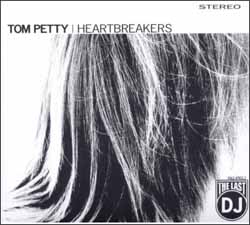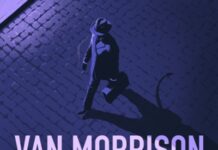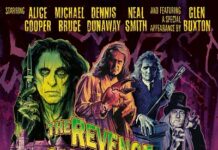Tom Petty’s clashes with the record industry are legendary. He squared off with MCA in the 80s, knee deep over contractual disputes and careening record prices, and challenged their unruly business practices. “Into The Great Wide Open” furthered Petty’s suspicions of the music business cycle, but by then it was all for naught. Warner Brothers has been home to Petty for almost 10 years where he has become one of the label’s most consistent selling artists without hindrance. In the meantime, the recording industry itself is watching its profits shrink in the face of a disenfranchised and industrious public. A bombshell in their laps, Petty and the Heartbreakers have stepped up to the plate to address the situation. On The Last DJ, tongues firmly planted in their cheeks, they probe into a changing landscape infiltrated by bottom lines, corporate ego, media influence and mediocrity — the very reasons CD burners and online communities flourish without guilt or remorse.
Abandoning any attempt to present a straightforward narrative, The Last DJ is nevertheless a well thought-out collection of 12 songs loosely hinged to the concept of throwaway product and ostentatiousness that penetrates the record industry. The title track fondly recalls a past when DJs like Tom Donahue and Jim Ladd dominated the airwaves with their blithe and non-commercial practice of free-form radio. Comparing today’s structured radio formats anesthetized for mass consumption, Petty ponders, “How much you’ll pay for/What you used to get for free.” The CD ventures forth into a majestic frolic, laced with magical hooks and regal embellishments. Jon Brion, known for his work on the Magnolia soundtrack, as well as producing Fiona Apple and Aimee Mann, tastefully decorates “Money Becomes King” (a tale of commerce over integrity), “Dreamville” (touching on a rarefied and glorious state of mind) and “Like A Diamond” with some truly magnificent orchestral arrangements. George Martin and the Beatles bear an incalculable weight over the proceedings, underscoring Petty’s spirit for those days gone by.
Delectably co-produced with George Drakoulias, who previously worked with Petty on the brilliant Wildflowers album, The Last DJ barrels through unobtrusively, taking on each formidable adversary with laconic style. There’s “Joe,” a no-nonsense footstomper delivered in first person that calls out the true villain of the record. “When A Kid Goes Bad” and “Lost Children” (featuring some suave and toasty wah-wah work from guitarist Mike Campbell) both question the portrayal of children in these modern, media-infested times. “Blue Sunday” is a simple observation about that special someone you may meet, get to know for a minute or a second, and then they’re gone but have left a lasting impression. “The Man Who Loves Women” is a silly toss-off disguised as a sort of tribute to Petty’s Traveling Wilbury band mate George Harrison while “Have Love Will Travel” is cast in that classic Heartbreakers’ mode. Petty, Campbell, keyboardist Benmont Tench, drummer Steve Ferrone, utility man Scott Thurston and original Heartbreaker bassist Ron Blair join together for “Can’t Stop The Sun,” the grand finale with an optimistic twist. Here, Petty stands up to the corporate mongrels, proclaiming: “You may think it’s all over/But there’ll be more just like me…” The word is out — the big wigs may be winning the war, but they’re losing the battle. The Last DJ is sumptuous assurance that eventually victory will be ours.
~ Shawn Perry




















